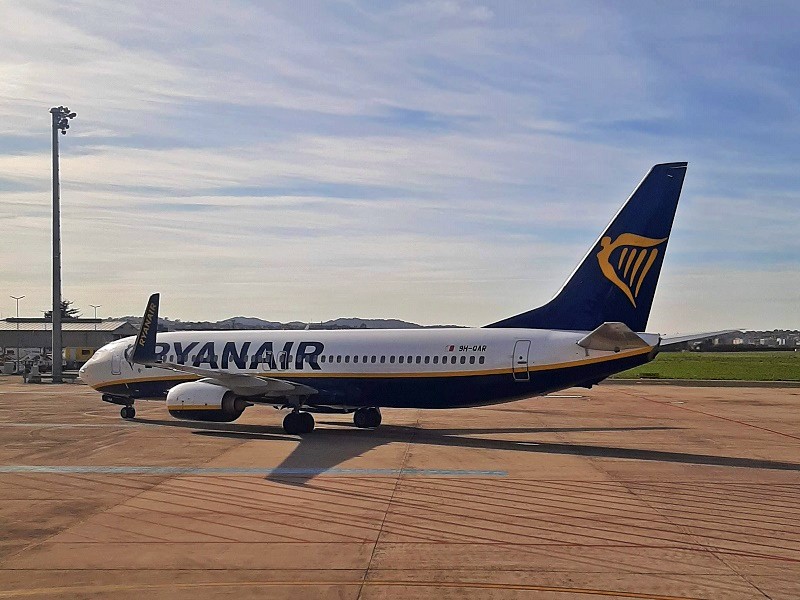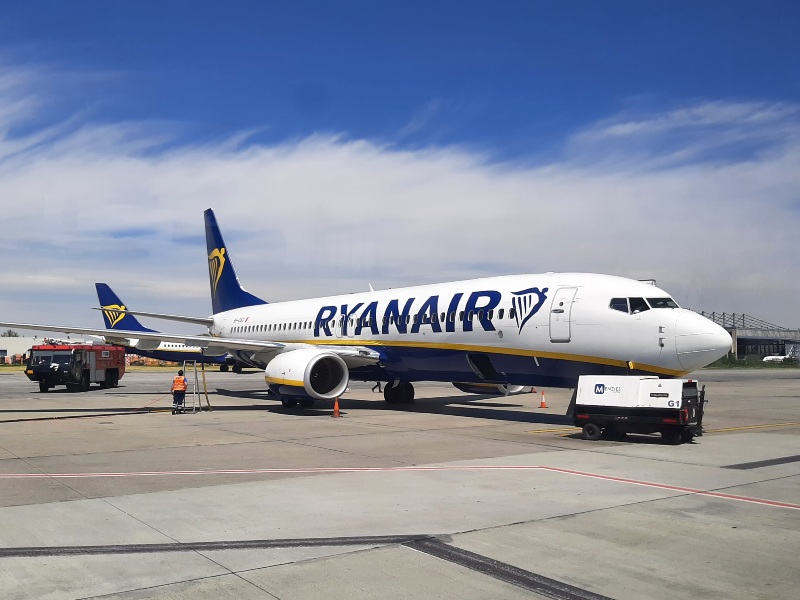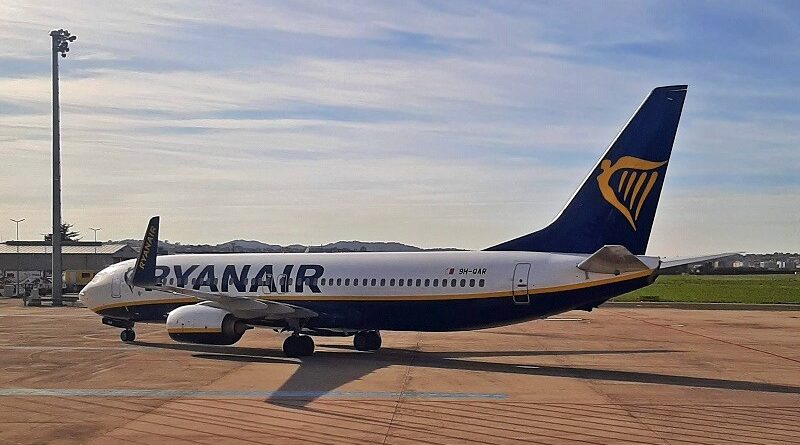Ryanair Cuts 800,000 Seats on Summer Flights to Spain
Ryanair will cut 800,000 seats on its flights to Spain as it reduces both domestic and international services in protest against excessive airport fees.
Ryanair cuts flights to Spain
Low-cost airline Ryanair has announced it will reduce domestic and international flights to Spain in the 2025 summer season, scrapping 800,000 seats in total.
In a press release sent out yesterday (Thursday 16th January), Ryanair announced the termination of all flights to the regional Spanish airports of Jerez de la Frontera and Valladolid.
Ryanair also stated it will reduce the number of flights to Asturias, Santander, Santiago de Compostela, Vigo, and Zaragoza.
In total, Ryanair will reduce its flight traffic in Spain by 18% in the summer of 2025, resulting in the loss of 12 routes and 800,000 seats.

Airport fees dispute
Ryanair cited “excessive regional airport fees” charged by AENA, the operator of all Spanish commercial airports, as the reason for slashing its route network in Spain.
In its press release, Ryanair blamed “excessive charges and the ineffectiveness of the ‘incentive plans’ of the monopolistic airport operator AENA, which are completely ineffective in supporting the Government’s policy of regional airport growth”.
Ryanair stated: “Despite the Spanish Government’s decision in 2021 to freeze airport charges until 2026, AENA has attempted to increase charges every year and most sharply at Spanish regional airports, where traffic remains below pre-Covid levels.”
Ryanair, which is the largest airline in Spain by passenger numbers, issued a stark warning to AENA.
It warned that if AENA fails to make Spanish regional airports more competitive compared to their counterparts in other European countries, “air traffic will tend to move away from Spanish regions”.

Ryanair strategy
Although Ryanair now operates flights from both Europe’s largest and smaller regional airports, its historic business model relied heavily on services to regional airports, where it benefits from lower fees and often profits from various incentives offered by local authorities eager to boost connectivity.
With much lower operating costs and shorter turnaround times at small regional airports, Ryanair can operate more flights and offer lower fares to its passengers.
However, such flights are only profitable when operating costs remain low, as higher airport fees and fewer incentives from regional authorities would increase ticket prices and make many flight routes unprofitable.
Although flight routes to smaller airports are beneficial for people living in more remote regions or those wanting to travel there, they remain difficult to operate, as the potential number of customers will always be lower compared to routes between major cities.

Negotiations
Compared to most other airlines, Ryanair has never shied away from taking a tough stance to ensure operating costs remain low.
Ryanair’s CEO, Michael O’Leary, is a master at using hardball tactics in negotiations and wields considerable leverage by making credible threats.
As a pan-European airline, Ryanair can easily back up its threats of moving capacity away from a certain airport or country, as it can always find good use for its aircraft in other parts of Europe, where it can increase capacity or open new flight routes.
Even though Spain has seen a record number of tourists in 2024 and remains a highly popular destination, Michael O’Leary wouldn’t hesitate to slash Ryanair flights to the country and shift capacity elsewhere if his demands aren’t met by Spanish authorities.
It will therefore be interesting to see how the Spanish government, as the owner of AENA, responds.

Conclusion
Ryanair will cut its flight traffic in Spain by 18% in the summer of 2025, eliminating 12 routes and reducing seat capacity by 800,000.
All flights to the regional Spanish airports of Jerez de la Frontera and Valladolid will be terminated by Ryanair, while the number of flights to Asturias, Santander, Santiago de Compostela, Vigo, and Zaragoza will be significantly reduced.
Ryanair cited high airport fees at Spanish regional airports as the reason for cutting its domestic and international route network in Spain.

